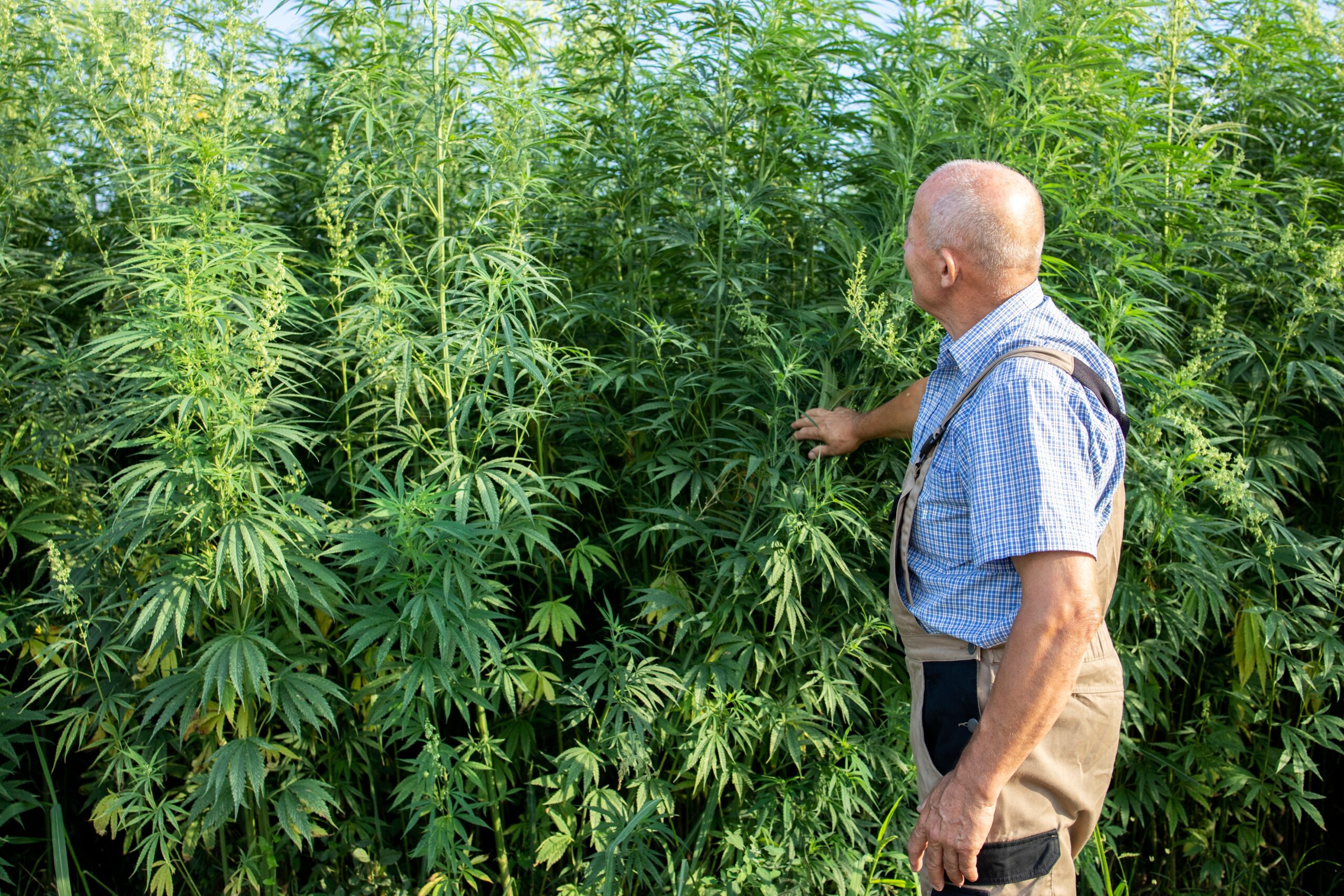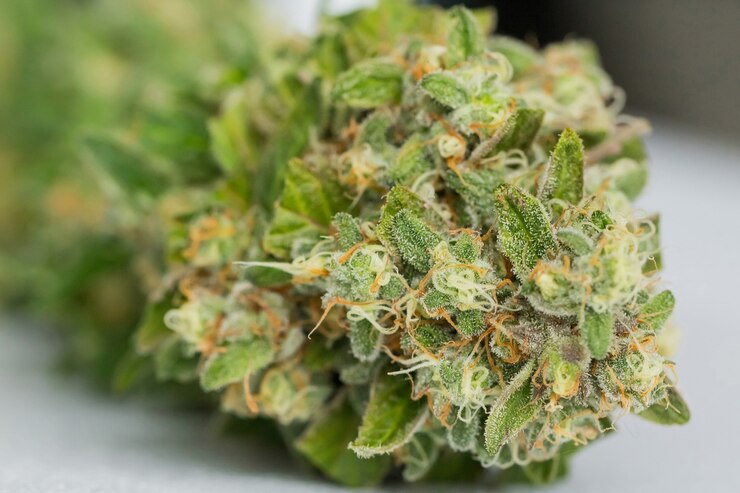Research has indicated that the expression of cannabinoid receptors is higher in diseased livers than in healthy livers. This naturally raises the question: Can marijuana have an impact on the liver? Could some of these conditions even be treated with it? After all, lungs with a higher receptor density will be more sensitive to cannabinoids.
These are the kinds of questions that many researchers are now attempting to answer, and we examine some of their findings below.
Common Liver Problems
Overall, livers are surprisingly resilient and strong enough to withstand a lot of stress, even from synthetic substances that they are not designed to process. However, livers can have issues as a result of a variety of substances and illnesses, some of which are quite serious.
Among the most typical liver issues are:
- Hepatitis
This virus damages the liver and can be lethal if left untreated. It results in scarring that impairs the organ’s capacity to operate normally.
- Fatty liver disease (FLD)
This illness can be caused by a number of factors, including obesity, a sedentary lifestyle, and long-term alcohol abuse. The accumulation of fat deposits in the liver diminishes its ability to function and ultimately results in liver failure.
- Fibrosis
This is the fibrotic tissues’ scarring. Once more, an unhealthy lifestyle can cause this. If left untreated, the scar tissue can grow to such an extent that it seriously impairs the liver’s capacity to function.
- Cirrhosis
This is the final stage of the fibrosis-related illness.
As you can see, there are many things that can go wrong with the liver, and the majority of them are caused by bad lifestyle decisions, the two main ones being obesity and alcohol misuse. Everything you eat comes into contact with your liver, which also takes the brunt of it. Therefore, it should come as no surprise that it suffers so much from consuming unhealthy food or alcohol in excess.
Particularly for disorders like FLD, the liver can heal itself provided the disease is not too severe. Because of the accumulation of scar tissue, conditions like fibrosis are less curable. Liver failure can result from any of these disorders and is lethal if untreated. A liver transplant is the only option once the liver reaches this point.
Thus, it seems that the best course of action in this situation is prevention.
Does Cannabis Impact Liver Function?
Liver conditions will always occur in some people, either as a result of their own decisions or just plain bad luck. In either case, getting them back to health requires finding efficient treatments.
We now wonder if cannabis, and particularly cannabinoids, will ever have an impact on liver function.
As things stand, conclusions cannot be made because the research is still in its early stages. However, we can take a look at the findings of the current investigation.
Cannabis and Fibrosis
In the human body, cannabinoid receptors, specifically CB1 and CB2, are relatively abundant. The endocannabinoid system (ECS) is made up of these receptors, endocannabinoids, enzymes, and other substances.
Endocannabinoids are cannabis that the body produces; the two most common ones are anandamide and 2-AG. These substances attach themselves to cannabinoid receptors to maintain normal bodily functions. This is also how cannabis works; the herb’s cannabinoids interact with the ECS to produce effects that are similar to endocannabinoids but different from them.
In the liver, CB1 and CB2 receptors are typically extremely rare. On the other hand, fibrosis patients seem to have a potentially much higher count than liver-healthy individuals, based on previously mentioned data.
These receptors are thought to have a profibrogenic function in the formation of scar tissue. It’s actually far more intricate than this. Parfieniuk and Flisiak’s (2008) research revealed that the two receptors play different roles. Profibrogenic and proinflammatory effects appear to be among the consequences of activating the CB1 receptor. These are not good for those who have fibrosis.
Cannabis and Fatty Liver Disease
There is conflicting research currently being conducted on the possible role of cannabis in FLD.
For example, Purohit, Rapaka, and Shurtleff’s (2010) study discovered that livers of patients with FLD had higher levels of CB1 receptors. CB2 receptor development then seems to be a result of CB1 activation. The researchers came to the conclusion that increased liver fat accumulation resulted from activation of either kind of receptor. This was particularly noticeable in those who developed FLD as a result of hepatitis.
Similarly, Berk et al. ‘s 2021 study looked at the impact of endocannabinoid activation on non-alcoholic FLD. Similar findings from the study indicated that there was a buildup of fat in the liver. They came to the conclusion that by comprehending this effect and adjusting the receptors appropriately, treatment options for FLD might be made available. It’s unclear, though, if cannabis could be relevant in this situation.
Cannabis and Hepatitis
Hepatitis virus infection can lead to immune-modulated liver disease. Hegde et al. (2008) investigated the possibility that THC-induced T-cell modulation may have an impact on hepatitis-related liver inflammation. It’s crucial to remember that because this study was done on mice, conclusions cannot be applied to people in a straight line.
An intriguing discovery, though, was that the endocannabinoid anandamide, which occurs naturally, seemed to lower cytokine levels. Fatty acid enzyme FAAH typically breaks down anandamide fairly quickly. But cannabidiol (CBD) functions to block this enzyme, increasing the amount of anandamide that the body can absorb.
Treatments for hepatitis can be extremely taxing and can be difficult to administer. Consequently, some research has looked into whether cannabis or its cannabinoids may have an impact on some of the severe side effects of hepatitis treatment. Chemotherapy is sometimes utilized for severe cases of hepatitis C. Nausea and anorexia are among the treatment’s most typical side effects. In light of this, a study conducted in 2008 by Costiniuk, Mills, and Cooper looked into the possibility that cannabis treatments taken orally could have an impact on these symptoms.
Cannabis and Alcoholism
One of the main causes of liver disease is alcohol consumption. Extended periods of alcohol consumption, even in small amounts, can harm the liver. Cannabis has been researched for its effects on liver disease as well as for its ability to assist individuals in quitting alcohol, which will allow the liver to heal itself.
Prudhomme, Cata, and Jutras-Aswad (2015), for instance, reviewed 14 studies—9 of which involved animals and 5 of which involved humans—to determine whether CBD may have an impact on addictive behaviors.
Turna et al. (2019) examined a number of studies as well and came to the same conclusions as Prud’homme et al. However, they also emphasized the significance of carrying out additional clinical studies on sizable human populations, as they did with a lot of this research. The majority of studies done thus far have been on animals or on cells that are not part of the body.
Although conclusions cannot yet be drawn from these results, they show that there is a real need for further research on cannabis and alcoholism.
Understanding the Interactions Between Cannabis and Medications
Yes. Specifically CBD. The liver enzyme cytochrome P450 is in charge of degrading the majority of medications and foreign substances. Therefore, this enzyme is probably what will dissolve and eliminate any medications you may be taking.
The problem with CBD is that it has the ability to temporarily deactivate this enzyme, which causes medications to metabolize more slowly. This could result in more severe and protracted side effects, or even damage to the liver, depending on the medication.
Therefore, consult a physician before taking CBD along with medication or other drugs, as the cannabinoid may have unintended negative effects.
There is a bright side to this, though. This inhibition of some drugs’ breakdown may pave the way for modifying current treatments. For example, a 2016 study discovered that CBD allowed other medications’ dosages to be decreased without compromising their effectiveness. It is believed that, with appropriate management, this could result in a reduction of drug dosages and side effects without compromising the desired effects.
Is There a Direct Link Between Cannabis and Liver Function?
It goes without saying that people who have liver disease shouldn’t light up. It’s unclear, though, if cannabinoids are generally “good” or “bad” for the liver.
It is evident that additional research is required to identify the positive and negative aspects. Determining the effects of cannabis even in situations where it might be harmful advances our knowledge of the diseases and possible cures.













